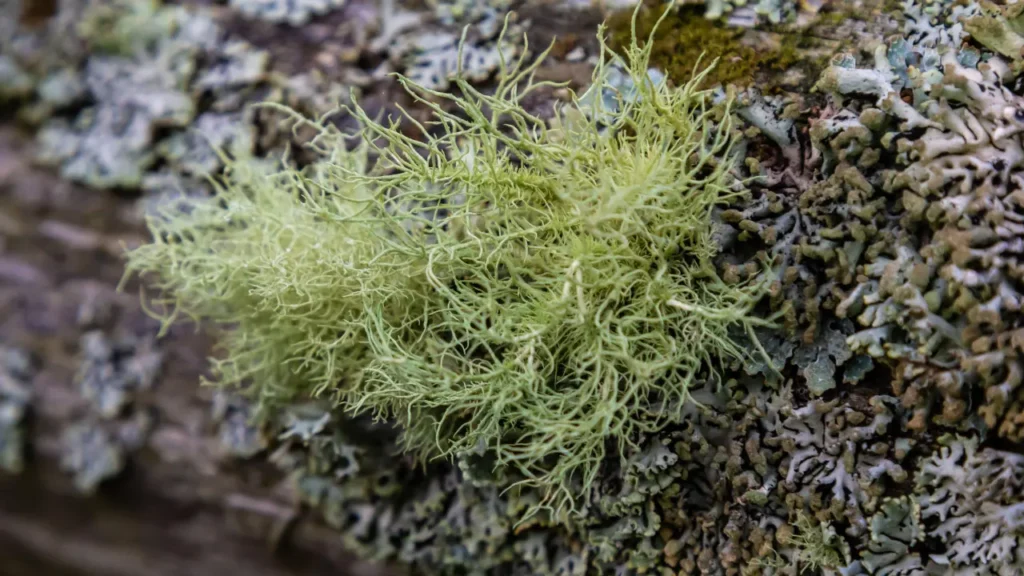Usnea, sometimes referred to as old man’s beard, is a type of lichen that grows on rocks and trees throughout the world. This unusual creature combines characteristics from both kingdoms in a symbiotic interaction between a fungus and an algae. Many traditional medical systems highly value usnea for its antibacterial, antiviral, and anti-inflammatory qualities. It is also used in contemporary dietary supplements. This article explores the scientific understanding of the herb by looking at its health benefits, ideal dosages, adverse effects, possible drug interactions, and responsible use.
You May Also Like:
The Best Supplements for Memory and Brain Fog: 5 Top Brands Reviewed
Finding the Best Supplements for Brain Fog After COVID: 5 Top Brands Reviewed
Usnea: Benefits, Dosage, Side Effects, Drug Interactions, and Other Important Information is an original (NootropicsPlanet) article.
Nature of Usnea
Usnea is an interesting creature that lives in a symbiotic relationship that unites the traits of the two different kingdoms of algae and fungus. Usnea has a resemblance to a beard, given its appearance as fine, thread-like strands hanging from tree branches, which gives rise to the term “old man’s beard.” Because of its special structure, Usnea can directly absorb moisture and nutrients from the air, which makes it a highly reliable indicator of the quality of the air. It can also withstand a wide range of conditions, from lush woods to parched deserts.
Health Benefits of Usnea
Usnea has several different health benefits, most of which are due to its strong bioactive ingredients. The following are the health benefits of Usnea:
- Antimicrobial Effects: Usnea contains a bioactive substance known as usnic acid which is particularly notable for having potent antibacterial, antifungal, and antiviral qualities that make it a useful natural substitute or addition to synthetic antimicrobials. These characteristics make usnea especially effective against infections, whether applied topically to the skin or taken internally for illnesses of the inside. This makes it a powerful tool in treating wound infections, urinary tract infections, and respiratory tract infections. Its broad-spectrum activity ensures effectiveness against a wide range of pathogens, including those resistant to standard antibiotics.
- Respiratory Health: Traditional uses of Usnea extend to the treatment of respiratory conditions such as pneumonia, tuberculosis, and bronchitis. Its antimicrobial properties help clear infections, while its anti-inflammatory effects reduce irritation and inflammation in the respiratory tract, easing coughs and improving airflow.
- Immune System Support: Usnea also appears to modulate the immune system, enhancing the body’s natural defense mechanisms. By promoting a healthy immune response, Usnea helps the body combat infections more efficiently and may reduce the duration and severity of illness.
- Skin Health: Topically, Usnea is used in the treatment of various skin conditions, including eczema, acne, and psoriasis. Its antimicrobial action helps to manage bacterial or fungal skin infections, while its anti-inflammatory properties soothe irritated skin, reducing redness and swelling.
- Antioxidant Properties: The phenolic compounds in Usnea exhibit antioxidant activities, protecting cells from oxidative stress and damage. This antioxidant action is beneficial not only for reducing the risk of chronic diseases but also for supporting cognitive health by protecting neural cells from degeneration.
- Cognitive Benefits: While direct research on Usnea’s effects on cognition is limited, its overall health benefits contribute to a supportive environment for cognitive function. By reducing inflammation, protecting against oxidative stress, and maintaining general health, Usnea may indirectly support cognitive functions.

Chemistry of Usnea
Usnic acid, phenolic compounds, and polysaccharides are the main bioactive components of usnea. One dibenzofuran derivative that is particularly well-known for having potent antibacterial and antifungal properties is usnic acid. It is believed that this chemical plays a major role in the health advantages of usnea. Because of its chemical interactions, usnic acid can affect cellular functions in the human body through a variety of molecular routes.
Potential Mechanisms of Action of Usnea in Cognitive Advancement
The methods that usnea works, particularly when it comes to improving cognitive function, include a number of different biochemical routes. Usnea’s antibacterial qualities indirectly assist cognitive activities by lowering infections and promoting general health. Even though Usnea’s antimicrobial effects have been examined more thoroughly than its direct impact on cognition, however, it is hypothesized that Usnea’s anti-inflammatory qualities can aid in reducing neuroinflammation, a condition associated with cognitive decline. Additionally, Usnea’s antioxidant components may shield brain tissue from oxidative damage, which could enhance neuronal performance and improve cognitive abilities.

Optimal Dosage of Usnea
The best dosage for Usnea to improve cognition or for any other health benefit is difficult to determine because of the variety of product formulations and individual sensitivity and metabolism. Usnea supplements are typically sold in tinctures, powders, and capsules, with dosages differing significantly between items. It is imperative to adhere to the manufacturer’s guidelines and seek advice from a healthcare professional before adding it to your supplemental routine. Tinctures are usually taken three times a day at a dosage of 1-2 ml, though this can change according to different conditions.
Side Effects and Safety Regarding The Use of Usnea
When used in moderation, most people regard Usnea to be safe. But because of its strong antibacterial properties, consuming too much of it could irritate your stomach by upsetting the delicate balance of gut flora. Furthermore, topical treatments containing Usnea may irritate those with sensitive skin. Pregnant or nursing women should refrain from using Usnea due to the absence of thorough safety data. Moreover, if you have any pre-existing medical issues, you should speak with a healthcare provider before using.

Potential Substance Interactions
Although there is little specific research on how Usnea interacts with other drugs, its strong effects would likely affect other prescriptions or supplements, especially ones that have opposite or comparable effects. For example, mixing Usnea with other potent antimicrobials may intensify their effects and cause an imbalance in the microbiota of the body. Likewise, Usnea may interact with drugs that the liver metabolizes due to its capacity to affect the metabolic pathways. It is best to speak with a healthcare professional to avoid unfavorable interactions.
Responsible Use of Usnea
When taken sensibly, usnea can be a helpful supplement for people looking to improve their cognitive function. It entails taking into account potential interactions with other medications, monitoring potential side effects, and following suggested dosages. Usnea should be employed as a supplemental strategy rather than the main means of improving cognitive abilities because there is insufficient data regarding its direct effects on cognitive processes. It would be more beneficial to utilize it in conjunction with a healthy lifestyle that includes mental activity, exercise, and a balanced diet to improve cognition.
Usnea:
Conclusion
Usnea can be commonly found throughout the world. It is a type of lichen that grows on rocks and trees in suitable conditions. It has a unique symbiotic interaction between a fungus and an algae. Usnea offers a strong antimicrobial effect due to its ability to produce usnic acid. It is a natural substitute or addition to synthetic antimicrobials. Hence, Usnea can made into a tool for treating infections in the body such as wound infections.
Moreover, it can also be made into topical medicine to help with eczema, acne, and psoriasis. Undoubtedly, its dibenzofuran derivative, usnic acid, plays an important role in all of the health benefits it provides. If you are interested in utilizing Usnea, we recommend consulting with a healthcare professional is advisable to ensure safety and efficacy.

References:
- Usnea Sp.: Antimicrobial Potential, Bioactive Compounds, Ethnopharmacological Uses and Other Pharmacological Properties; A Review Article. Retrieved from:https://pubmed.ncbi.nlm.nih.gov/33276059/
- Usnic Acid and Usnea Barbata (L.) F.H. Wigg. Dry Extracts Promote Apoptosis and DNA Damage in Human Blood Cells Through Enhancing ROS Levels. Retrieved from:https://pubmed.ncbi.nlm.nih.gov/34439420/
- Antioxidant And Cytotoxic Activities of Usnea Barbata (L.) F.H. Wigg. Dry Extracts in Different Solvents. Retrieved from:https://pubmed.ncbi.nlm.nih.gov/34062835/
Important Note: The information contained in this article is for general informational purposes only, and should not be construed as health or medical advice, nor is it intended to diagnose, prevent, treat, or cure any disease or health condition. Before embarking on any diet, fitness regimen, or program of nutritional supplementation, it is advisable to consult your healthcare professional in order to determine its safety and probable efficacy in terms of your individual state of health.
Regarding Nutritional Supplements Or Other Non-Prescription Health Products: If any nutritional supplements or other non-prescription health products are mentioned in the foregoing article, any claims or statements made about them have not been evaluated by the U.S. Food and Drug Administration, and such nutritional supplements or other health products are not intended to diagnose, treat, cure, or prevent any disease.


